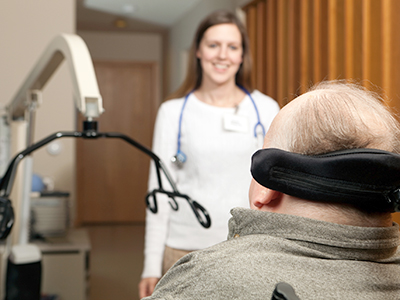
Findings link MS health outcomes with a person’s postal code, identifying another high-risk factor for the incurable disease.
Residence in a higher income neighbourhood decreased the risk of death among Canadians living with Multiple Sclerosis (MS), according to the findings of a new study led by Vancouver Coastal Health Research Institute researcher Dr. Helen Tremlett.

An incurable and progressive disease, MS attacks the myelin sheath around nerves within the central nervous system, slowing connections between the brain and other parts of the body. This can lead to waxing and waning symptoms, such as vision impairment, pain, extreme fatigue, bladder dysfunction, mood changes, cognitive impairment and decreased balance or coordination.

The symptoms of MS can lead to a decrease in socioeconomic status due to lost wages, as employment can be impacted by MS. Tremlett’s prior research also found an association between lower socioeconomic status — based on neighbourhood-level income — and a higher risk of disability progression among people with MS.
Socioeconomic status can be defined as a persons’ level of income, wealth, education and prestige. Individuals with higher socioeconomic status tend to have more resources to purchase healthy, nutritious food and access extended health services.
“Until now, the relationship between socioeconomic status and morbidity and mortality among persons with MS was poorly understood.”
In her study — published in the Multiple Sclerosis Journal — Tremlett and her research team surveyed the health records of over 12,126 people with MS over a 23-year period. Their assessment of the data included examining each person’s socioeconomic status by using the Statistics Canada tool in which each individual’s postal code is linked with the average income level in their neighbourhood.
Tremlett and her team then compared this sociodemographic information to survival outcomes among the patient population. They were also able to access this socioeconomic status information close to the onset of MS, limiting the possibility of reverse causation, which could arise as individuals may experience a decrease in their socioeconomic status following their diagnosis of MS. Likewise, the team controlled for the use of disease-modifying treatments for MS.
“We found that lower socioeconomic status based on neighbourhood-level income was associated with a higher mortality risk among people with MS.”
Tremlett’s results show that people in the lowest socioeconomic status group — the most deprived — had a 61 per cent higher chance of mortality compared to individuals in the highest socioeconomic status group.
This finding raises concerns about the health and longevity implications of neighbourhood affluence on people living with MS, and presents sociodemographic factors that researchers should consider in their study design, says Tremlett.
“For people living with MS, our study shows that there may well be modifiable factors beyond the use of pharmaceutical drugs that can impact their health outcomes.”
In particular, low socioeconomic status based on neighbourhood-level income can now be considered a risk factor in MS, Tremlett states.
Socioeconomic status may restrict timely or appropriate MS care
Socioeconomic status based on neighbourhood-level income can mean that a low-income individual residing in an affluent neighbourhood would still be counted as having a higher socioeconomic status. Conversely, high-income individuals living in a less wealthy neighbourhood would be counted as having a lower socioeconomic status.
“Socioeconomic status is complex and involves various factors, requiring additional studies to better understand and potentially translate into care recommendations,” says Tremlett. However, Tremlett hypothesizes that socioeconomic status could, in part, restrict timely or appropriate health care.

“For example, not everyone may be able to easily take time off work to take care of their health or visit a physician or pharmacy,” notes Tremlett. “Likewise, not everyone may have easy access to transportation to travel to appointments, or the ability to take time off work to rest if they experience a flare-up of their symptoms.”
Higher socioeconomic status may also be associated with closer proximity to additional green space — linked to improved health effects — and less traffic noise, which can improve a person’s sense of well-being, sleep and immune system health. Living in a safer neighbourhood may additionally encourage more engagement in outdoor recreation and other community-based activities.


